Related Research Articles

The economy of Cameroon was one of the most prosperous in Africa for a quarter of a century after independence. The drop in commodity prices for its principal exports – petroleum, cocoa, coffee, and cotton – in the mid-1980s, combined with an overvalued currency and economic mismanagement, led to a decade-long recession. Real per capita GDP fell by more than 60% from 1986 to 1994. The current account and fiscal deficits widened, and foreign debt grew. Yet because of its oil reserves and favorable agricultural conditions, Cameroon still has one of the best-endowed primary commodity economies in sub-Saharan Africa.
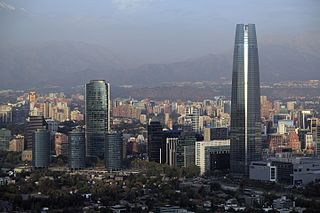
The economy of Chile is a market economy and high-income economy as ranked by the World Bank. The country is considered one of South America's most prosperous nations, leading the region in competitiveness, income per capita, globalization, economic freedom, and low perception of corruption. Although Chile has high economic inequality, as measured by the Gini index, it is close to the regional mean.
Corporate haven, corporate tax haven, or multinational tax haven is used to describe a jurisdiction that multinational corporations find attractive for establishing subsidiaries or incorporation of regional or main company headquarters, mostly due to favourable tax regimes, and/or favourable secrecy laws, and/or favourable regulatory regimes.
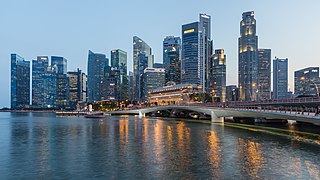
The economy of Singapore is a highly developed free-market economy with dirigiste characteristics. Singapore's economy has been previously ranked as the most open in the world, the joint 4th-least corrupt, and the most pro-business. Singapore has low tax-rates and the second-highest per-capita GDP in the world in terms of purchasing power parity (PPP). The Asia-Pacific Economic Cooperation (APEC) is headquartered in Singapore.

The economy of France is a highly developed social market economy with notable state participation in strategic sectors. It is the world's seventh-largest economy by nominal GDP and the ninth-largest economy by PPP, constituting around 4% of world GDP. Due to a volatile currency exchange rate, France's GDP as measured in dollars fluctuates sharply. France has a diversified economy, that is dominated by the service sector, whilst the industrial sector accounted for 19.5% of its GDP and the primary sector accounted for the remaining 1.7%. France was in 2020 the largest Foreign Direct Investment recipient in Europe, and Europe's second largest spender in research and development. It was ranked among the 10 most innovative countries in the world by the 2020 Bloomberg Innovation Index, as well as the 15th most competitive nation globally, according to the 2019 Global Competitiveness Report. It was the fifth-largest trading nation in the world. France is also the most visited destination in the world, as well the European Union's leading agricultural power.
A multinational corporation (MNC), also referred to as a multinational enterprise (MNE), a transnational enterprise (TNE), a transnational corporation (TNC), an international corporation or a stateless corporation with subtle but contrasting senses, is a corporate organization that owns and controls the production of goods or services in at least one country other than its home country. Control is considered an important aspect of an MNC, to distinguish it from international portfolio investment organizations, such as some international mutual funds that invest in corporations abroad simply to diversify financial risks. Black's Law Dictionary suggests that a company or group should be considered a multinational corporation "if it derives 25% or more of its revenue from out-of-home-country operations".
Fidelity Investments, commonly referred to as Fidelity, earlier as Fidelity Management & Research or FMR, is an American multinational financial services corporation based in Boston, Massachusetts. The company was established in 1946 and is one of the largest asset managers in the world with $4.3 trillion in assets under management, and, as of December 2022, their assets under administration amount to $10.3 trillion. Fidelity Investments operates a brokerage firm, manages a large family of mutual funds, provides fund distribution and investment advice, retirement services, index funds, wealth management, securities execution and clearance, asset custody, and life insurance.

A foreign direct investment (FDI) refers to purchase of an asset in another country, such that it gives direct control to the purchaser over the asset. In other words, it is an investment in the form of a controlling ownership in a business, in real estate or in productive assets such as factories in one country by an entity based in another country. It is thus distinguished from a foreign portfolio investment or foreign indirect investment by a notion of direct control.

The economy of the European Union is the joint economy of the member states of the European Union (EU). It is the third largest economy in the world in nominal terms, after the United States and China, and the third one in purchasing power parity (PPP) terms, after China and the United States. The European Union's GDP estimated to be around $16.6 trillion (nominal) in 2022 representing around one sixth of the global economy. Germany has by far the biggest national GDP of all EU countries, followed by France and Italy.
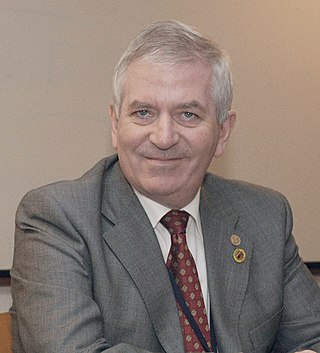
Ireland's Corporate Tax System is a central component of Ireland's economy. In 2016–17, foreign firms paid 80% of Irish corporate tax, employed 25% of the Irish labour force, and created 57% of Irish OECD non-farm value-add. As of 2017, 25 of the top 50 Irish firms were U.S.–controlled businesses, representing 70% of the revenue of the top 50 Irish firms. By 2018, Ireland had received the most U.S. § Corporate tax inversions in history, and Apple was over one–fifth of Irish GDP. Academics rank Ireland as the largest tax haven; larger than the Caribbean tax haven system.
Foreign ownership refers to the ownership of a portion of a country's assets by individuals who are not citizens of that country or by companies whose headquarters are not in that country.
EFG Hermes Holding S.A.E. is an Egyptian financial services company present in the Middle East, North Africa, Sub-Saharan Africa, and South Asia regions and specializes in securities brokerage, asset management, investment banking, private equity and research in addition to finance lease, factoring, microfinance, Financial technology, mortgage, and insurance. EFG Hermes serves a range of clients including sovereign wealth funds, endowments, corporations, financial institutions, high-net-worth clients and individual customers. EFG Hermes is listed on the Egyptian Exchange (EGX) and London (LSE) stock exchanges. EFG Hermes has offices in Egypt, the United Arab Emirates (UAE), the Kingdom of Saudi Arabia (KSA), Pakistan, Oman, Kuwait, Jordan, Kenya, Nigeria, UK, United States and Bangladesh with over 4,500 people from 25 nationalities. They serve clients from the Middle East, North Africa, Europe and the United States. Currently, EFG Holding is listed as number 13 in Forbes' Top 50 Listed Companies in Egypt 2023.
A transnational corporation is an enterprise that is involved with the international production of goods or services, foreign investments, or income and asset management in more than one country. It sets up factories in developing countries as land and labor are cheaper there.
A tax haven is a term, sometimes used negatively and for political reasons, to describe a place with very low tax rates for non-domiciled investors, even if the official rates may be higher.

China has an upper middle income, developing, mixed, socialist market economy, that incorporates industrial policies and strategic five-year plans. It is the world's second largest economy by nominal GDP, behind the United States, and the world's largest economy since 2016 when measured by purchasing power parity (PPP). Due to a volatile currency exchange rate, China's GDP as measured in dollars fluctuates sharply. China accounted for 19% of the global economy in 2022 in PPP terms, and around 18% in nominal terms in 2022. Historically, China was one of the world's foremost economic powers for most of the two millennia from the 1st until the 19th century. The economy consists of public sector enterprise, state-owned enterprises (SOEs) and mixed-ownership enterprises, as well as a large domestic private sector and openness to foreign businesses in a system. It overtook the economy of the European Union in 2021. Private investment and exports are the main drivers of economic growth in China; but the Chinese government has also emphasized domestic consumption.
Global workforce refers to the international labor pool of workers, including those employed by multinational companies and connected through a global system of networking and production, foreign workers, transient migrant workers, remote workers, those in export-oriented employment, contingent workforce or other precarious work. As of 2012, the global labor pool consisted of approximately 3 billion workers, around 200 million unemployed.

The Double Irish arrangement was a base erosion and profit shifting (BEPS) corporate tax avoidance tool used mostly by United States multinationals since the late 1980s to avoid corporate taxation on non-U.S. profits. It was the largest tax avoidance tool in history and by 2010 was shielding US$100 billion annually in US multinational foreign profits from taxation, and was the main tool by which US multinationals built up untaxed offshore reserves of US$1 trillion from 2004 to 2018. Traditionally, it was also used with the Dutch Sandwich BEPS tool; however, 2010 changes to tax laws in Ireland dispensed with this requirement.
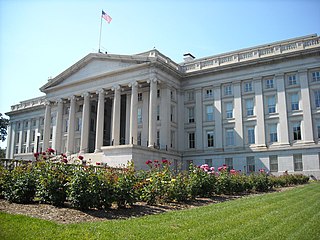
Base erosion and profit shifting (BEPS) refers to corporate tax planning strategies used by multinationals to "shift" profits from higher-tax jurisdictions to lower-tax jurisdictions or no-tax locations where there is little or no economic activity, thus "eroding" the "tax-base" of the higher-tax jurisdictions using deductible payments such as interest or royalties. For the government, the tax base is a company's income or profit. Tax is levied as a percentage on this income/profit. When that income / profit is transferred to another country or tax haven, the tax base is eroded and the company does not pay taxes to the country that is generating the income. As a result, tax revenues are reduced and the government is detained. The Organisation for Economic Co-operation and Development (OECD) define BEPS strategies as "exploiting gaps and mismatches in tax rules". While some of the tactics are illegal, the majority are not. Because businesses that operate across borders can utilize BEPS to obtain a competitive edge over domestic businesses, it affects the righteousness and integrity of tax systems. Furthermore, it lessens deliberate compliance, when taxpayers notice multinationals legally avoiding corporate income taxes. Because developing nations rely more heavily on corporate income tax, they are disproportionately affected by BEPS.
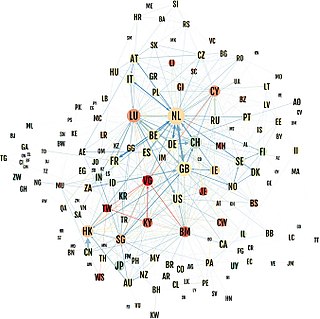
Conduit OFC and sink OFC is an empirical quantitative method of classifying corporate tax havens, offshore financial centres (OFCs) and tax havens.

Ireland has been labelled as a tax haven or corporate tax haven in multiple financial reports, an allegation which the state has rejected in response. Ireland is on all academic "tax haven lists", including the § Leaders in tax haven research, and tax NGOs. Ireland does not meet the 1998 OECD definition of a tax haven, but no OECD member, including Switzerland, ever met this definition; only Trinidad & Tobago met it in 2017. Similarly, no EU–28 country is amongst the 64 listed in the 2017 EU tax haven blacklist and greylist. In September 2016, Brazil became the first G20 country to "blacklist" Ireland as a tax haven.
References
- ↑ "Largest Transnational Corporations". Archived from the original on 2012-05-15.
- 1 2 Stuart Wall and Bronwen Rees (2004). International Business . Pearson Education. pp. 24. ISBN 9780273685913.
- ↑ The International Trade Journal August 1999
- ↑ Grazia Ietto-Gillies and Tannis Seccombe-Hett (1998-10-08). "What do Internationalization Indices Measure?" (PDF). Centre for International Business Studies, London South Bank University.
- 1 2 Peter Dicken (2003). Global Shift. SAGE. pp. 221–224. ISBN 9780761971504.